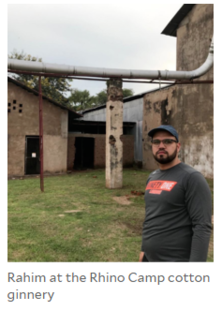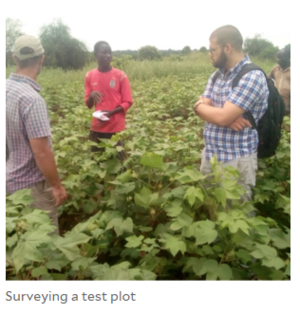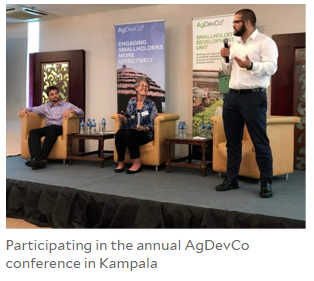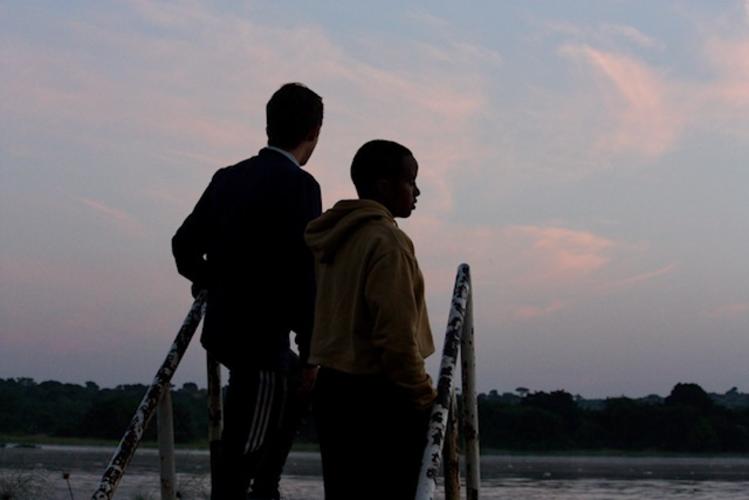Rahim Haliminski

Rahim graduated from Yale with a deep interest in small holder farming communities and the challenges they face gaining access to fair prices and export markets for their crops. During his junior year, Rahim attended our class “Social Enterprise: Market Solutions for Inclusive Societies” and spent his summer in Nairobi working with Bridge International Academies in their customer care team. This experience reinforces a central topic of our classwork—that user satisfaction (expressed through demand) is a critical element of success for any enterprise that seeks to build a financially sustainable platform. Bridge regards their primary age students and fee-paying parents as customers who have a choice in attending a Bridge school, and like other customers, have high quality standards relative to the status quo.
Another project that year was with Gulu Agricultural Development Company, based in Gulu Uganda south of the South Sudan border. As the Gulu team shared their experiences helping small holder farmer gain access to greater training and techniques, Rahim began considering how he could match his long-standing interest in farming with a newfound appreciation for working with low income communities on the continent.
GADCO CEO, Bruce Robertson, interviewed Rahim and on June 10 he began shadowing the current Project Manager in Rhino Camp. Here is a post from an email Rahim sent shortly thereafter:
“It has been a great time of learning. I am definitely getting that mix of business and development projects in the work, which we have explored in your class. Quite a lot of moving parts in the day-to-day. Currently GADC is executing 4 projects and three more are in the pipeline. I have been working on understanding each of them and leading on the new ones. On the business side of things, it is definitely quite interesting to witness the constraint of cashflow; I understand little there but will be quite important to engage with in the long-term.”
As of this posting, Rahim has become the project manager for cotton as well as the sesame value chains. Training framers and managing the complex cash flow (pre-season disbursement and post-harvest collection) takes up more than his available time. To that end, we are excited that Rahim will manage his own team of three Yale students this coming summer—working to help streamline the information flows related to cash outlays.


Juli Cho
 My first visit to Kenya was in September of 2014, when I was shadowing and interviewing a social enterprise project building retail kiosks that were not only profitable, but also providing access to clean water and energy in underserved communities in developing countries. I had been a college senior then, conducting research for an evaluation report as part of a yearlong course called “Market Solutions for Inclusive Societies.” It was my first time in Kenya, Africa, and in a developing country.
My first visit to Kenya was in September of 2014, when I was shadowing and interviewing a social enterprise project building retail kiosks that were not only profitable, but also providing access to clean water and energy in underserved communities in developing countries. I had been a college senior then, conducting research for an evaluation report as part of a yearlong course called “Market Solutions for Inclusive Societies.” It was my first time in Kenya, Africa, and in a developing country.
At the time, I knew very little about international development. I was born and raised in South Korea and was attending college in the U.S. Even though I was broadly interested in the public and social sectors, these two countries made up the most of my world. I certainly did not know that I would be returning to Africa—both Kenya and other parts of the continent—frequently in the following years.
During the course of my time in Kenya and the process of the analysis and writing, I began to realize the vast potential for growth of economies in the African continent, driven by the burgeoning consumer market and the magnitude of its natural resources, particularly in the agricultural sector. I also learned that these countries often face unique and exceptionally difficult challenges and that markets and businesses can be a powerful tool to address them. Is there market demand for clean water, electricity, connectivity, and household goods in rural communities? Yes. Is there profit—and positive social impact—to be had by providing access to those goods and services? Potentially. Can the barriers to profitability and impact—such as the distance from infrastructure and large populations of urban cities, the need for durability, the lack of human resources, and the limited disposable income of the potential customer base—be addressed? Perhaps.
I became fascinated by these questions and keen to find answers. When I graduated from college, I joined TechnoServe, an international non-profit organization dedicated to developing business solutions to poverty—an organization I had come across in my studies of social enterprises and market-based solutions. For the past four years, I’ve been working at TechnoServe as part of a team that specifically identifies and establishes shared value initiatives in partnership with multinational corporations with footprint in emerging markets. I’ve found this work to be challenging, but also fascinating, with real potential to alleviate poverty sustainably and effectively.
Shortly before my first trip to Kenya, I read that five million children under the age of five die every year, mainly in the developing world, from preventable and treatable diseases. To this day, I still can’t think of anything more senseless than five million unnecessary deaths happening so disproportionately in certain parts of the world. My hope is that I have spent the past five years addressing this senselessness in some small way—and that I will continue to do so for many more years to come.





 My first visit to Kenya was in September of 2014, when I was shadowing and interviewing a social enterprise project building retail kiosks that were not only profitable, but also providing access to clean water and energy in underserved communities in developing countries. I had been a college senior then, conducting research for an evaluation report as part of a yearlong course called “Market Solutions for Inclusive Societies.” It was my first time in Kenya, Africa, and in a developing country.
My first visit to Kenya was in September of 2014, when I was shadowing and interviewing a social enterprise project building retail kiosks that were not only profitable, but also providing access to clean water and energy in underserved communities in developing countries. I had been a college senior then, conducting research for an evaluation report as part of a yearlong course called “Market Solutions for Inclusive Societies.” It was my first time in Kenya, Africa, and in a developing country.